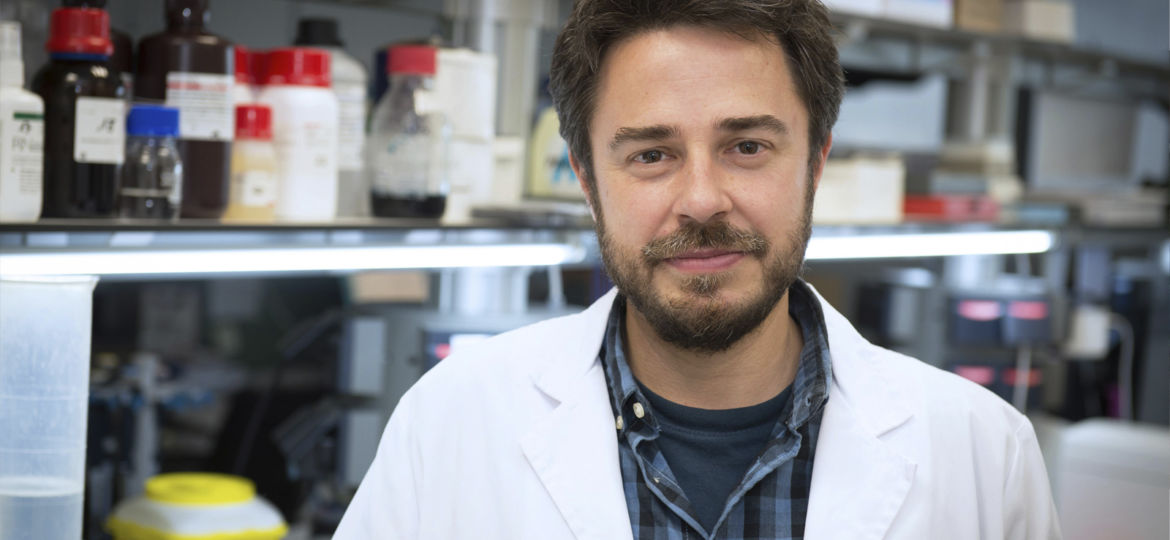
- Presented during this week’s American Society of Clinical Oncology’s (ASCO) Annual Meeting, 03 – 07 June 2022, Chicago (IL, USA), circulating tumor DNA analyses of samples from the phase III VOYAGER trial show that ctDNA sequencing correlates with outcomes of GIST patients pretreated with tyrosine kinase inhibitors.
- Selected by ASCO as an oral presentation, this VHIO-led research is the first to evidence that ctDNA captures the mutational landscape and therapeutic activity in patients with pretreated advanced GIST.
- Prior investigations in the field have achieved limited levels of evidence due to the modest number of patients studied.
Barcelona, June 4th, 2022. Cancer is a highly dynamic and heterogeneous disease that continuously evolves over time. The advent of liquid biopsy as a powerful diagnostic tool enables the more precise real-time tracking and ‘policing’ of tumors, and is increasingly stepping up in better guiding clinical decision making. Representing an important advancement in more effectively combating cancer, blood-based circulating tumor DNA (ctDNA) analysis can more precisely capture the molecular makeup of this disease.
Selected by the American Society of Clinical Oncology (ASCO) to first outing as an oral presentation*during its Annual Meeting, 03 – 07 June 2022, Chicago (IL, USA), results of a study led by César Serrano, Principal Investigator of VHIO’s Sarcoma Translational Research Group, have now extended the clinical utility of liquid biopsy in pretreated patients with advanced gastrointestinal stromal tumor (GIST).
The researchers analyzed ctDNA samples from patients enrolled in the open-label, randomized phase III VOYAGER clinical trial that assessed the efficacy of tyrosine kinase inhibitors (TKIs) avapritinib versus regorafenib in patients with KIT- or PDGFRA-mutant advanced GIST who had received prior treatment with imatinib and 1 or 2 other TKIs.
“While the VOYAGER phase III trial did not meet its primary endpoint since both TKI’s showed very similar clinical activity, we analyzed the ctDNA samples collected in this study to validate the utility of ctDNA analysis in plasma by liquid biopsy,” says César Serrano, lead investigator of this study and a Medical Oncologist and Clinical Investigator of VHIO’s Genitourinary, CNS Tumors, Sarcoma & Cancer of Unknown Primary Site Group (PI: Joan Carles).
“One of the main challenges in studying GIST is that these malignancies are rare. It is therefore difficult to recruit a large series of patients. The VOYAGER trial counted on the participation of 476 patients which is a considerably high number in view of this less frequent tumor type,” adds César Serrano.
Due to the rarity of these cancers, previous clinical studies have focused on early stages of disease or have been performed in patients who have received few prior lines of therapy. Achieving a deeper understanding of how these tumors evolve has been limited since both the development of GIST and the exposure to therapies lead to mutations that can drive cancer drug resistance.
Through their analysis of ctDNA samples, the researchers have identified mutations in up to 86% of these patients and thus validated the utility of liquid biopsy as a powerful diagnostic tool in this setting. “We have now evidenced the value of next generation sequencing of plasma cell-free DNA in the majority of these patients with advanced GISTs refractory to tyrosine kinase inhibitors. This approach will help to advance insights into the heterogeneity of KIT mutations,” observes César Serrano.
Based on their ctDNA analysis, this study is the first to define the molecular mechanisms of this disease, and detect prevalent resistance mutations as well as new ones. The investigators established that 25% of these identified mutations had not been previously described. Illustrating the vast complexity of GIST, up to 17% of patients had four or more mutations.
Liquid biopsy as a powerful prognostic tool
GIST, a type of sarcoma, is a rare tumor, which makes it difficult to carry out clinical studies and test the efficacy of anti-cancer therapies. This impacts the prognosis of these patients. Up to 85% of patients present oncogenic driver mutations in a receptor tyrosine kinase, which may be in the KIT gene or PDGFRA gene; both of which have become ideal targets for the development of new treatments.
The advent of TKI imatinib in the early 21st century revolutionized treatment in GIST patients where unresectable or metastatic disease moved from a uniformly lethal cancer to a manageable disease with durable responses and better overall survival. Subsequently, new tyrosine kinase inhibitors have been developed, with different results depending on the mutations present in patients.
“Despite these new treatments, we still did not have biomarkers that could help to better guide treatment decision making. Results of this present study show that liquid biopsy can be a valuable tool, at least in identifying those patients who would not derive benefit from some of these therapies,” concludes César Serrano. As an example, the investigators have discovered that the identification of mutations in the ATP-binding domain in KIT correlates negatively with the activity of avapritinib, and, in the absence of mutations detected in plasma, patients have a better prognosis.
Reference:
Cesar Serrano, Sebastian Bauer, David Gómez-Peregrina, Yoon-Koo Kang, Robin L.Jones, Piotr Rutkowski, Olivier Mir, Michael C. Heinrich, William D. Tap, KateNewberry, Alexandra Grassian, Stephen G. Miller, Hongliang Shi, Patrick Schöffski,Maria A. Pantaleo, Margaret von Mehren, Jonathan C. Trent, Suzanne George. “Circulating tumor DNA (ctDNA) analyses of the phase III VOYAGER trial: KITmutational landscape and outcomes in patients with advanced gastrointestinalstromal tumor (GIST)”. ASCO Annual Meeting. 2022. https://meetinglibrary.asco.org/record/209244/abstract











